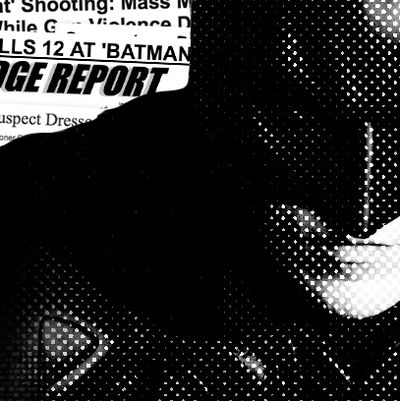
Many of us in the media — and by “in the media,” I mean vaguely everyone on Earth, tweeter and writer and reader alike — awoke this morning to two opportunities to be disgusted. First and foremost, we confronted the methodical violence in Aurora, Colorado, where a madman in a gas mask and protective gear allegedly shot 71 people at a midnight screening of The Dark Knight Rises. Second, we confronted our own reflexes, as the inevitable thoughts followed: Was that mask … a Bane costume? And if so, what will that mean? To the country? To moviegoers? To Mitt Romney?
Facile parallels between Batman’s fictional villain and the shooter were, I confess, among my first thoughts. Followed closely by: I am repellent. I wasn’t alone. Instant speculation about the movie’s role in the shooting bloomed like algae. The New Yorker’s Anthony Lane, while dismissing direct correlations between the social-upheaval story line and a mass murderer in swat gear, mused about the movie’s potential as a psycho-magnet, wrist-slapping a culture that builds up a superhero entertainment into a socially and emotionally cathected “movie event.” Even NYPD commissioner Ray Kelly got into the pop-punditry, reportedly spreading a confusing and unconfirmed rumor that the shooter styled himself as “the Joker.” (Kelly, perhaps, was keen to see audiences stay home, and put the New Jack City–style kibosh on a movie that, in his preemption-attuned eyes, was a potential threat.)
It was always thus. Weegee glued himself to his police scanner and tried to beat the sirens to the scene; we comb our social-media feeds for correlations (if not causations) that will yield blog posts and op-eds. The difference is accelerated information metabolism and the urgent need for “narrative.” After Kelly, knowingly or not, helped build the story line, it instantly became the headline on Drudge: “joker” kills 12 at “batman.” Fox News led with a picture of the gas mask. And The Dark Knight Rises had already been declared significant; its media profile preceded it. (It had been the center of a bogus story line, propagated by Rush Limbaugh, about anti-Bain smears.) The skids are pre-greased. Narrative is easy, after all, and it is much more fun than facing the obvious: that in our country, powerful weapons too easily fall into the hands of mentally ill people. The “Batman massacre” narrative allows us to process real tragedy as just more television.
We look for narrative especially when layers of media create distance between the horror and its audience. In the hours after 9/11, a Manhattanite told me: “For people who live downtown, 9/11 was something that happened at the Trade Center site; for people uptown, it’s something that happened downtown; for the rest of America, it’s something that happened in New York.” For everyone, everywhere, it was something that happened on TV. I was in Toronto at a film festival that day, and was struck by how quickly the critics and writers in the hotel lobbies began turning the event into media criticism. Some spoke of how we’d been “rehearsing this moment, in cinema, for twenty years.” Many of these ideas made it into print and into the history, a process we’ve seen many times: Think of that other Colorado massacre, at Columbine, and the search for motive in the video game Doom or films like Fight Club and The Matrix. Narrative often feels like all we’ve got, because it gives us the illusion of resolution. Stories, after all, have endings. The entrenched reality — a culture that is willing to trade a few lives for easy availability of military-grade firearms — does not. This will happen again, and when the next sequel arrives, we’ll call it a trend. Because a trend is far more entertaining than a problem.

